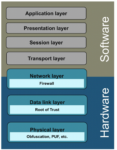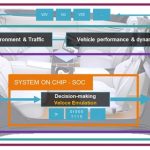Emotion AI, also known as affective computing or artificial emotional intelligence, is a rapidly growing field within artificial intelligence that seeks to understand, interpret, and respond to human emotions. This technology is designed to bridge the gap between human emotions and machine understanding, enabling more … Read More
Tag: autonomous vehicles
Designing for Security for Fully Autonomous Vehicles
With the advent of IoT devices, vehicles have become increasingly interconnected, offering enhanced automation, connectivity, electrification, and shared mobility. However, this progress also brings forth unprecedented challenges, particularly in ensuring the safety and security of automotive electronics. The complexity… Read More
AI and Machine Unlearning: Navigating the Forgotten Path
In the rapidly evolving landscape of artificial intelligence (AI), the concept of machine unlearning has emerged as a fascinating and crucial area of research. While the traditional paradigm of AI focuses on training models to learn from data and improve their performance over time, the notion of unlearning takes a step further… Read More
Automotive Lone Bright Spot
Automotive appears to be about the only bright spot in the semiconductor market for 2023. Forecasts for the overall semiconductor market range from a decline of 4% to a decline of 20%. Semiconductor companies generally have bleak outlooks for the start of 2023, citing excess inventories ad weak end market demand. The chart below… Read More
Podcast EP130: Alphawave IP’s Rise in the Semiconductor Ecosystem with Tony Pialis
Tony Pialis, co-founder and CEO of Alphawave, a global leader in high-speed connectivity IP enabling industries such as AI, autonomous vehicles, 5G, hyperscale data centers, and more. He is the former VP of Analog and Mixed-Signal IP at Intel and has co-founded three semiconductor IP companies, including Snowbush Microelectronics… Read More
Musk: Colossus of Roads, with Achilles’ Heel
For Tesla, 2021 was an amazing year. A blindspot looms in 2022.
Critics cheered the National Highway Traffic Safety Administration for opening multiple investigations into fatal and near fatal Tesla crashes. Legislators decried the de facto beta testing of Tesla’s Full Self-Driving beta on public roads. And in December,… Read More
CEO Interview: Gireesh Rajendran CEO of Steradian Semiconductors
Gireesh Rajendran is a 2010 MIT TR35 winner from India. He holds 44 issued US patents in RF products and circuit techniques and co-authored 3 ISSCC papers. He completed his B Tech in Electronics from College of Engineering, Trivandrum, India in 2000 and joined Texas Instruments. During his 13 years tenure in TI, he architected and… Read More
Making pre-Silicon Verification Plausible for Autonomous Vehicles
I love reading about the amazing progress of autonomous vehicles, like when Audi and their A8 model sedan was the first to reach Level 3 autonomy, closely followed by Tesla at Level 2, although Tesla gets way more media attention here in the US. A friend of mine bought his wife a car that offers adaptive cruise control with auto-braking,… Read More
High-Level Synthesis for Automotive SoCs
Some of the world’s most complex Systems-on-Chip (SoCs) are being developed for automotive applications. These SoCs have heterogeneous architectures with a variety of processors and accelerators that do real-time image processing for assisted and autonomous driving applications. The Bosch Visiontec team, in Sophia Antipolis,… Read More
Driverless Policy Making
The Vision Zero movement, embraced by Sweden and select U.S. and foreign cities around the world, continues to elude the grasp of U.S. Department of Transportation leadership. I was reading an impassioned letter to the President by Marianne Karth on the issue this morning – impassioned because Karth lost two daughters … Read More









